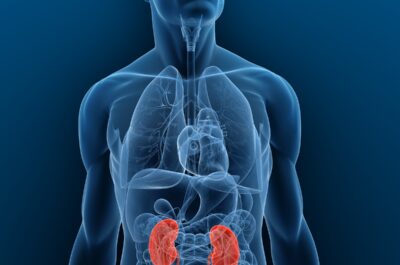Researchers are showing that belly fat is a predictor of a shortened life expectancy in men and women. In a recent study published in the American College of Cardiology Feb. 2013 the following finding were noted, “In patients with Coronary Artery Disease (CAD) normal weight with central obesity was associated with the highest risk of mortality. The study examined 15,547 people over a period of 5 years. The mean age was 66 years of age and 55% were men. Approximately 30% of those in the study group died during the 4 year period of observation. The findings also support the fact that BMI alone is not a predictor of a patient’s outcome. The researchers stated that “Clinicians should go beyond BMI when assessing mortality risk in patients with CAD, because combining BMI with measures of central obesity allows us to better discriminate those at the highest and lowest risk of dying.”[1] Obesity has been typically associated with diabetes, hypertension, and dyslipidemia and people with CAD are typically either overweight or obese.
If you are a loved one is concerned about losing body fat or you have a history of cardiovascular disease or diabetes all is not lost. You made need a diet modification and exercise to help you eliminate this problem and to allow you to extend your life. A recent study concerning yogurt had the following findings, “Fat loss was markedly increased on the yogurt diet (-4.43+/-0.47 vs. -2.75+/-0.73 kg in yogurt and control groups; P<0.005) while lean tissue loss was reduced by 31% on the yogurt diet. Trunk fat loss was augmented by 81% on the yogurt vs. control diet (P<0.001), and this was reflected in a markedly greater reduction in waist circumference Further, the fraction of fat lost from the trunk was higher on the yogurt diet vs. control.[2]
No Fat of Low Fat Greek yogurt is the best addition to your diet. Greek yogurt is high in protein, which helps you feel full. A typical 6-ounce serving contains 15 to 20 grams, the amount found in 2 to 3 ounces of lean meat. In addition Greek yogurt contains roughly half the carbohydrates as the regular kind—5 to 8 grams per serving compared with 13 to 17. In addition the straining process removes some of the milk sugar, lactose, making Greek yogurt less likely to upset the lactose-intolerant[3]
Replace your diet with a diet rich in monounsaturated fats. A study published in Diabetes Care published these results. The conclusion of the study stated,” Monounsaturated fat rich diet prevents central body fat distribution and decreases postprandial adiponectin expression induced by a carbohydrate-rich diet.” [4] These foods come from plant sources and include; avocados, nuts, seeds, oils and olives.
Dr. Oz has posted on his new belly fat diet the following: The foundation of any MUFA meal has:
- 3 ounces lean protein
- 1 complex carb
- Unlimited vegetables
- 1 MUFA
- Each meal should be 350 calories (or fewer)
(Dr. Oz Link: http://www.doctoroz.com/videos/dr-oz-flat-belly-plan)
You can find some other suggestions at the link above for losing belly fat. Your goal is to get started. There is no reason to stay in denial and say it cannot happen to me or to give up. You can do something about belly fat and sometime just making simple changes a day at a time can help you to get started.
[1] Coutinho, Thais, MD and others. Combining Body Mass Index With Measures of Central Obesity in the Assessment of Mortality in Subjects With Coronary Disease. Role of Normal Weight Central Obesity. Journal of the American College of Cardiology. Vol. 61 Issue 5, Feb. 2013. http://content.onlinejacc.org/article.aspx?articleid=1559955
[2] Zemel, MB, and others, Dairy Augmentation of total and central fat loss in Obese Subjects. International Journal of Obesity. 2005 Apr;29(4):391-7
[3] Haupt, Angela, Hiatt, Curtis, Greek Yogurt Vs. regular which is more healthy? Sept. 30, 2011. US NEWS
[4] Paniaqua, JA and others. Monounsaturated fat-rich diet prevents central fat distribution and postprandial adiponectin expression induced by a carbohydrate-rich diet in insulin resistant subjects. Diabetes Care. 2007 Jul;30(7):1717-23. Epub 2007 Mar 23


